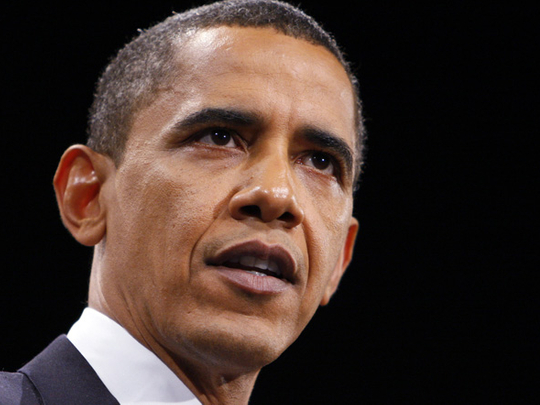
Political types in the United States will tell you that the key to any election is whether it comes down to a referendum or a choice; and how one frames this issue is, perhaps, the most important bit of messaging a campaign does.
Republicans have sought to make the 2012 presidential election a referendum — a vote in which the main issue is President Barack Obama himself. Do you like him or don’t you? Has he succeeded or failed? Whatever it is you see when you look at Obama, do you want to keep seeing it for four more years?
Nothing surprising there. Challengers, as a rule, try to make elections referendums on the incumbent.
Incumbents, in turn, are eager for elections to be seen as a choice. The question, an incumbent says, is not, “Did I meet your expectations?”, but, “Would you rather have him?”
Both of these tendencies are more pronounced in presidential races than in, say, an election for governor or mayor because incumbency is one of any president’s biggest strengths. However much one may dislike the current President (I’m referring to any incumbent here, not just Obama), the American presidency comes with such awesome power that entrusting it to anyone without a track record is always going to feel like something of a gamble.
All of this helps explain why more than a few Democrats have been jumping with joy since Mitt Romney chose Wisconsin Congressman Paul Ryan as his vice-presidential running mate ten days ago.
Until now, Romney has been careful to be the most innocuous candidate possible. He seemed to realise very early in this campaign that his Republican primary opponents consisted mainly of unelectable oddballs. Placed on stage alongside the likes of Michele Bachmann, Herman Cain and Newt Gingrich, Romney’s main challenge was to stay out of the way while everyone else self-immolated.
Until last week he had also carried this philosophy into the general election campaign. His pitch to voters could be summarised as follows: “Whatever it is you don’t like about Obama, that’s fine, because I’m not Obama.”
Simplistic though it may sound, this strategy has been successful on several occasions. It is how Franklin Roosevelt ran against Herbert Hoover in 1932. It describes Ronald Reagan’s successful campaign against Jimmy Carter in 1980, and Bill Clinton’s approach to the elder George Bush 12 years later.
What all three of those successful challenges have in common is economic distress — a fact of which 2012 Democrats are acutely aware.
Late last week Rachel Maddow, an unabashed liberal who hosts a political talk show on MSNBC, said: “I believe that if you look at the fundamentals this presidential election is the Republicans’ for the taking. And I believe that the Romney campaign is fundamentally incompetent on the basic decisions they need to make in order to take something that ought to be basically theirs.”
Maddow, like many other commentators on the American left, was marvelling at the shift of the Republican campaign from referendum to choice — what would seem to be a move directly onto the Democrats’ home ground.
Ryan, the GOP’s newly minted vice-presidential candidate, is best known for a plan to restructure Medicare, America’s health plan for the elderly, into a programme that would help with, but no longer guarantee, care. This is part of a larger budget proposal (Ryan chairs the House of Representatives’ Budget Committee) designed to shrink the US government radically. Democrats believe that with Ryan on the GOP ticket they can make the coming election a choice between competing visions of government rather than a referendum on Obama’s time in office.
They might be right about that. Then again, that sort of election pre-supposes campaigns built on thoughtful, honest discussion between the two parties. Judging by the last few weeks, that seems rather unlikely.
I have been in the Middle East for several weeks, and every few days someone asks me about the election. Almost invariably the question is phrased along these lines: “It’s pretty much over. Obama is definitely going to win. Right?”
In a word: No. It is still close. It could still go either way. It will probably stay like that.
Ryan’s addition to the GOP ticket makes it a bit more likely that Obama will manage to turn November’s vote into a choice, but only a bit. In any case, making this election a referendum or a choice guarantees victory for neither side in and of itself — in a close election that distinction confers, at best, an edge.
We still have 11 weeks to go. A lot can happen in 11 weeks.
Gordon Robison, a long time Middle East journalist and US political analyst, teaches political science at the University of Vermont.









